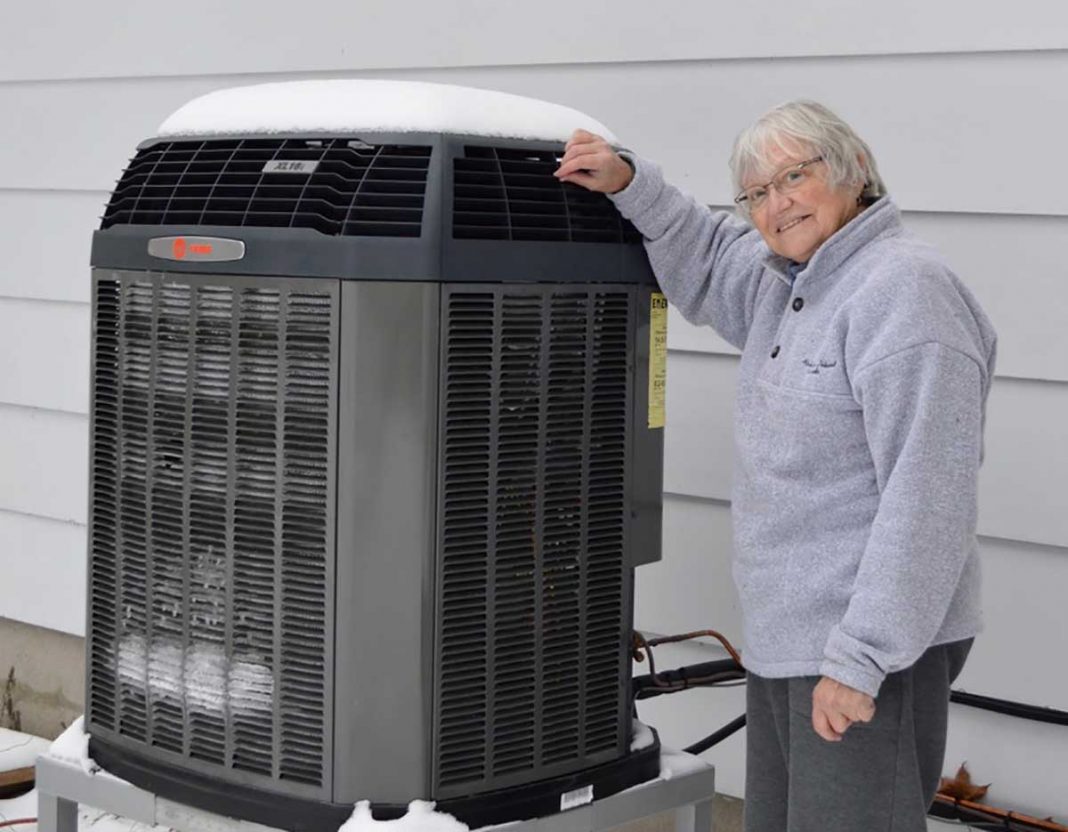MINDEMOYA – Jan McQuay is a familiar face among climate change activists on Manitoulin Island. She’s been writing letters to the editor and articles about renewable energy, most recently about electric charging stations and electric vehicles. She’s been sharing posts and promoting discussion on Facebook and signing every petition that comes her way that has anything to do with climate change.
Ms. McQuay is also a member of the newly formed Climate Change Committee for Central Manitoulin and prepared a backgrounder for the inaugural meeting held in late May.
Ms. McQuay worked for Energy Probe in the 1970s and early 1980s. In 1981 she wrote a book called ‘Over the Barrel: A Guide to the Canadian Energy Crisis.’ Since she has retired she’s become more and more concerned about climate change.
“Back in 1981 climate change was hardly even heard of,” she said. “It merited one paragraph in my book. It’s since become to me an existential threat to life as we know it. We’re getting perilously close to runaway climate change and once we get there, there’s no going back.”
A few years ago, Ms. McQuay found herself involved with Fridays for Future, the international movement that began when then 15-year-old Greta Thunberg sat in front of the Swedish parliament every day for three weeks to protest the lack of action on the climate crisis. This eventually led Ms. McQuay to become a member of Citizens Climate Lobby Canada (CCL). She recently attended a virtual conference that covered a wide range of topics that included perspectives on legislating climate accountability in Canada; insights gained from international climate lawsuits and carbon pricing initiatives around the world; and how to build a better future faster. She was especially excited to participate in the conversation about Canada’s carbon pricing policy.
In a media release following the conference, Joe Robertson, global strategy director for CCL, was quoted as saying, “Canada has shown smart, economically efficient leadership by putting in place a federal carbon pricing policy that directly benefits Canadian households. This model can be emulated by other nations to strengthen their own economic futures. As it stands, Canada is racing ahead.”
CCL Canada has been lobbying the Canadian government since 2010 to put an incrementally increasing price on carbon pollution and then give the money back to the people, explained Cathy Orlando, the organization’s Canadian director. “That policy is called ‘carbon fee and dividend’ and the government did it, but it has a few things that need to be fixed that we think will help make it better.”
One problem, said Ms. Orlando, is that people don’t actually know that they’re receiving money back from the government because it’s hidden in their income tax. “We feel that people should get either a bank transfer or a cheque so they can physically see that they’re getting something from the government. The Parliamentary Budget Office as well as numerous think tanks show that 80 percent of Canadians come out ahead with this policy.”
CCL also believes the price for carbon must rise beyond 2022. “It stops at $50 a ton and we know that with economic modeling that as that price extends out to 2030 and gets up to about $200 a ton that will do so much heavy lifting for Canada to help us reduce our emissions.”
It’s a way to cut emissions without burdening taxpayers. Ms. Orlando compares this to giving money for ‘green’ projects. By entering data into Climate Interactive, an international website designed to review policy solutions, CCL found that full government subsidies towards clean technologies would only reduce global temperatures by about 0.2°C. “This policy has the potential to get us at least 1.5 degrees lower if it was enacted globally,” she said. “I didn’t realize how little clean energy reduces global temperature. It was a shock. Even removing subsidies to fossil fuels barely budges it. Putting a price on carbon is just the biggest thing you can do.”
“Fossil fuels get to pollute for free. If fossil fuels had to pay for what they were doing, they would not be doing it. We have to make them pay,” she said. “It’s that simple.”
“If you’re an investor and you’re looking at where to put your money, and you know that in 2030 the price of carbon pollution will make fossil fuels so much less competitive than clean technology, where are you going to put your money? You’re going to put it where you get the most for your financial investment,” continued Ms. Orlando. This will change the economy, she said. “I’m not alone in what I say. Twenty-seven Nobel prize-winning economists and literally thousands of economists worldwide endorse the kind of carbon policy that we have been lobbying for since 2010.”
It takes committed and focused citizens to advocate for change. Along with other Islanders, Ms. McQuay intends to reach out to local MPs to discuss making Canada’s carbon policy better. “We need to act quicker than we’re acting,” she said. “This is similar to COVID-19 in that it’s a crisis but COVID-19 is a crisis that has spread within six months and the greenhouse gas crisis is something that’s going to continue to develop over a couple decades. COVID-19 is actually giving us a little pause in our oil and gas and coal use but if we go back to it and pretend everything is the same, we’re heading straight for runaway global warming. Now is a particularly crucial time to get our politicians to understand that this is urgent and we need to treat this as we treat the pandemic, as a crisis.”





